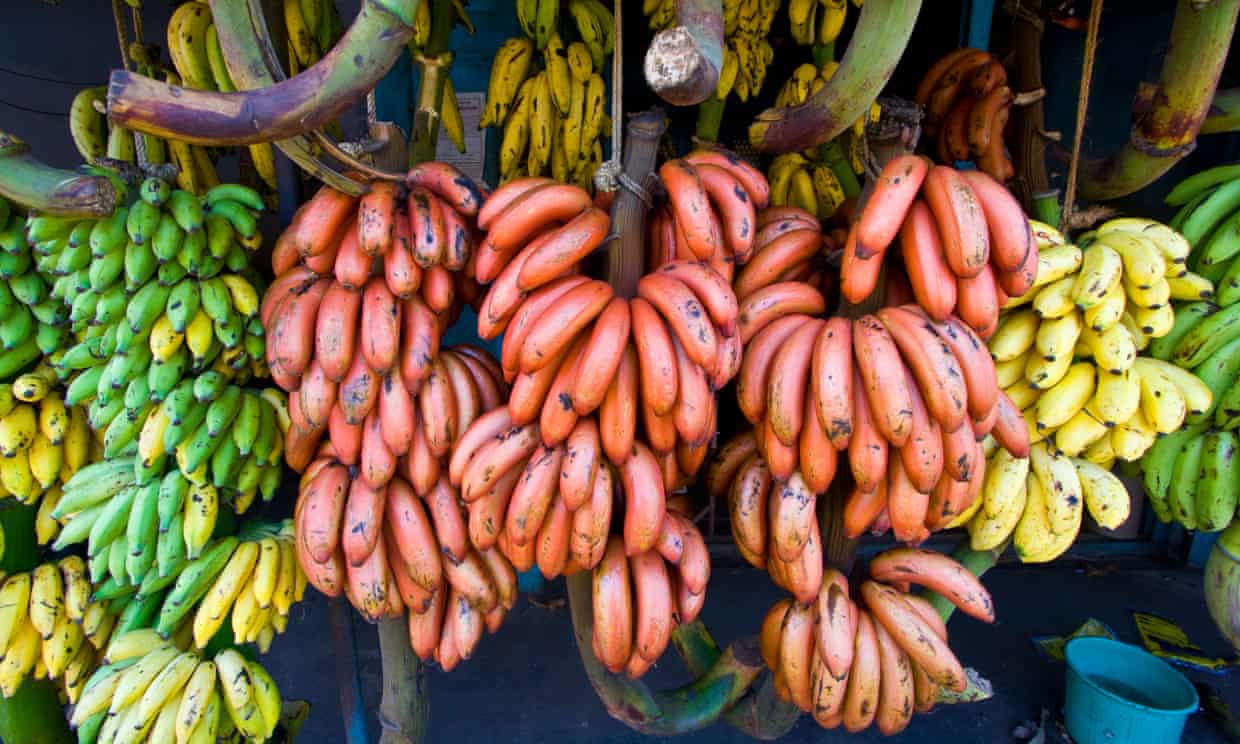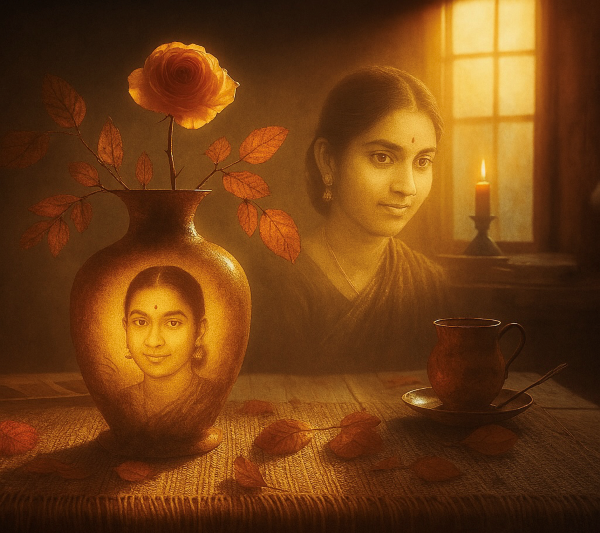There are more than 1,000 varieties of banana, and we eat one of them. Here’s why that’s absurd-by Dan Saladino
Source:Theguardian
The meeting of the World Banana Forum last week in Rome didn’t make many headlines. But what was under discussion there has serious implications for everyone. The ubiquitous yellow fruit is the proverbial canary in the mine of our modern food system, showing just how fragile it is. And the current plight of the banana should serve as an invitation to us all to become champions of food diversity.
When you peel a banana, you’re on the receiving end of a near-miraculous $10bn supply chain. One that sends seemingly endless quantities of a tropical fruit halfway across the world to be among the cheapest, most readily available products in supermarket aisles (on average, around 12p a banana). But, incredibly, there’s no inbuilt backup plan or safety net if the one variety that most of the global trade depends on starts to fail.
The most striking point made at this year’s forum came in a seemingly innocuous comment in the event’s opening speech. The director general of the UN’s Food and Agriculture Organisation, Dr Qu Dongyu, questioned why, with more than 1,000 known varieties of banana, the world mostly depends on just one, a species called the Cavendish. That needs to change, he said, hinting that we are all part of the problem.
Most people don’t question why every banana they’ve ever eaten looks and tastes pretty much the same. Most of us will never try a blue java from Indonesia with its soft, unctuous texture and flavour of vanilla ice-cream, or the Chinese banana that is so aromatic it’s been given the name go san heong, meaning “you can smell it from the next mountain”. The demand for low-cost, high-yielding varieties has resulted in vast monocultures of just one type of globally traded banana, and this is true of many other crops as well. Homogeneity in the food system is a risky strategy, because it reduces our ability to adapt in a rapidly changing world.
Unlike wild bananas, which grow from seed, every single Cavendish is a clone, the offspring of a slice of the plant’s suckers growing below ground. This means it has no way of evolving, so it can’t adapt to new threats that arise in the environment. Panama disease, also known as fusarium wilt, is whipping through monocultures of Cavendish bananas in Asia, Australia, Africa and, most recently, in Latin America and the Caribbean, the source of 80% of the world’s traded bananas. Just a few spores carried on a spade or even on clothing is all it takes to contaminate a plantation, and growing the Cavendish on that land is no longer an option.
One solution in the face of this devastating disease is to use genetic modification or gene-editing to develop bananas with greater resistance. James Dale, a professor at Queensland University of Technology, spent decades working on a modified version of the Cavendish designed to be “highly resistant” to the variant of Panama disease that’s attacking the Cavendish. But Dale believes it’s not a magic bullet. The long-term answer, he thinks, is to bring greater diversity into the food system.
During the research for my book Eating to Extinction, a conversation with Dale proved revelatory. Monocultures do not exist in nature, he told me, and we need to learn lessons from this. Much greater diversity used to exist in the global food system. But in introducing a smaller number of highly productive crops, this diversity was lost. In response to this, scientists at the UK’s leading crop research centres, the National Institute of Agricultural Botany (NIAB) in Cambridge and the John Innes Centre in Norwich, are working to bring diversity back into the fields using genetics from heritage varieties that were pushed to the brink of extinction by modern varieties.
Scientists are looking at other precarious crops, such as coffee, which is made up of varieties that emerged from just a handful of plants sent around the world in the 18th and 19th centuries. The climate crisis is making the future of the coffee species we depend on – arabica and robusta – look bleak. This is why botanists at Kew have identified viable and delicious alternatives from the more than 120 other coffee species around the world. The most promising is Coffea stenophylla, a species found in Sierra Leone that almost went extinct in the 1950s.
At a policy level, there are reasons to be optimistic. At Cop15, held in December 2022 in Montreal, 196 countries signed up to the Global Biodiversity Framework. The headline pledge is to save 30% of nature on land and sea by 2030, part of which includes urgent action to “halt extinction of threatened species”. Less well known is the fact that these threatened species also include domesticated ones, referring to the 7,000 or so plants humans have used for food over millennia.
And there are farmers’ initiatives such as Wildfarmed, which is experimenting with a wider range of wheat varieties. The flour is already finding its way on to the high street through major retailers and nationwide pizza chains. Meanwhile, in the east of England, Hodmedod’s, a business set up by three food and farming researchers, is looking back to what was grown in Britain during the iron age and reviving neglected varieties of grains and pulses, including carlin peas and emmer wheat.
But if Qu Dongyu is right that a big problem is the lack of “acceptance by retailers and consumers of different varieties”, we all need to step up. We need to let it be known that we want greater diversity. This rallying call could be as simple as buying a variety of bean or pea we haven’t tried before, an unusual type of wheat, or even – if one were to appear in store – a different banana.
-
Dan Saladino is a food journalist, broadcaster and author of Eating to Extinction: The World’s Rarest Foods and Why We Need to Save Them
… there is a good reason why people choose not to support the Guardian.
Not everyone can afford to pay for the news right now. That’s why we choose to keep our journalism open for everyone to read, even in Sri Lanka. If this is you, please continue to read for free.
But if you can, then here are three good reasons to make the choice to support us today.
1. Our quality, investigative journalism is a scrutinising force at a time when the rich and powerful are getting away with more and more.
2. We are independent and have no billionaire owner controlling what we do, so your money directly powers our reporting.
3. It doesn’t cost much, and takes less time than it took to read this message. Choose to support open, independent jour





















